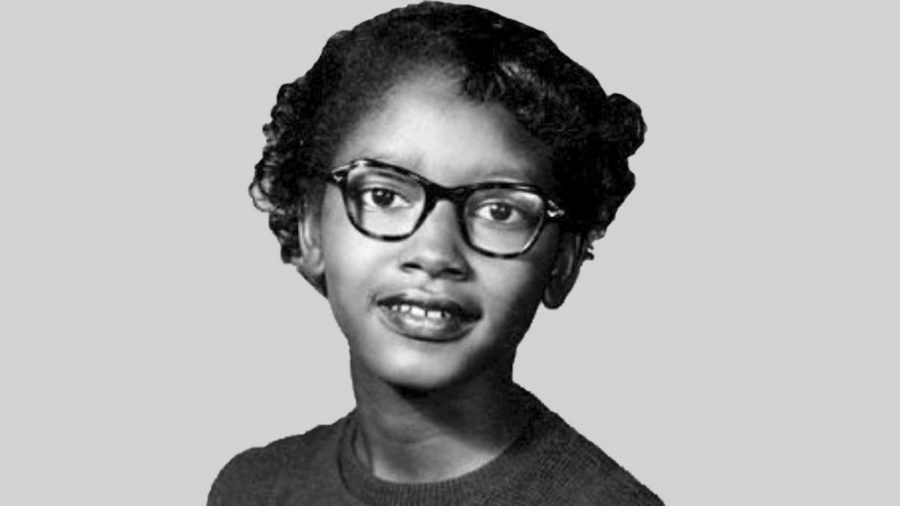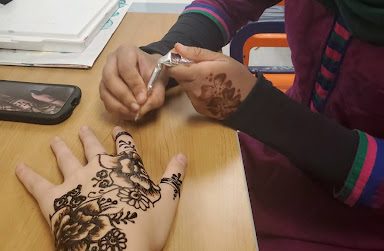Claudette Colvin: the unsung civil rights pioneer
Photo courtesy of BBC
Claudette Colvin at age 13 in 1953, just two years before her act of resistance.
April 21, 2021
Claudette Colvin’s forgotten story of refusal: a 15-year-old who didn’t give up her bus seat.
Rosa Park’s resolute act of defiance is widely known, and while her work is not to be overlooked, she was not the first Black woman to defy unjust bus laws.
“I think it’s incredibly important for activists [like Colvin] to be able to have a platform,” says freshman Madison Abicht. “If she didn’t have the courage to share her story then it would remain unrecognized.”
On March 2, 1955, in Montgomery Alabama, nine months before Parks, Colvin sat still. She took the bus after school with a few of her friends and was ordered to give up her seat to a young white woman. While her three classmates listened, Colvin stood her ground rejecting the order to give up her seat.
“One of the questions [ I was] asked: ‘ Why didn’t you get up when the bus driver asked you and the policemen?’” Colvin says in an interview with Democracy Now. “ I said I could not move because history had me glued to the seat. It felt like Sojourner Truths hands were pushing me down on one shoulder, and Harriet Tubman’s hands pushing down on another shoulder.”
There were, however, a few reasons as to why her story remained in the dark for so many years. According to NAACP(National Association for the Advancement of Colored People) leaders, Colvin was an opinionated 15-year-old. She was pregnant by a married man, making NAACP leaders view Colvin as an improper symbol, thinking that they couldn’t win the case against segregation laws with a teenager. Colvin also recalls the color of Park’s skin: she was lighter and the texture of her hair was more acceptable. Along with Park’s mature image, and age she was ultimately chosen as a better representative for the case.
“I’m around the same age [as Colvin], and if I had the courage that she had I’d be proud,” freshman Hannah Clemons explains. “Being a young Black woman myself, the discrediting of black activists seems to repeat itself in history for multiple reasons, some of which are seen in Claudette’s story, it’s very compelling.”
In fact, Colvin’s story was so riveting that author Phillip Hoose decided to write a book on Colvin called, Claudette Colvin: Twice Toward Justice. For four years, Colvin rejected Hoose’s offer, after coming to terms with Hoose, Colvin wanted to get her story into schools. The book went on to win the National Book Award for Young People’s Literature and the John Newbery Medal,
Colvin says in an excerpt from Claudette Colvin: Twice Toward Justice by Phillip Hoose, “I knew then and I know now that, when it comes to justice, there is no easy way to get it. You can’t sugarcoat it. You have to take a stand and say, ‘This is not right’.”










![“Smiles for Myles [is the idea that] happiness can be a long term thing for Myles,” said Buddies Club sponsor and disabilities teacher Madison McKenna.](https://theoracleonline.org/wp-content/uploads/2024/02/MylesArticleKeyPhoto-452x600.jpg)




![“Piccolo” is not the start of Martineau’s filmmaking journey. In the beginning of his high school career, Martineau decided to enter the filmmaking scene in an attempt to discover more about himself. “My mom’s Jamaican and there’s not very many Jamaican movies, but [when] I would watch ‘The Harder They Come,’ [that] got me interested in the Nouvelle Vague Cinema,” said Martineau.](https://theoracleonline.org/wp-content/uploads/2024/02/unnamed-40.jpg)